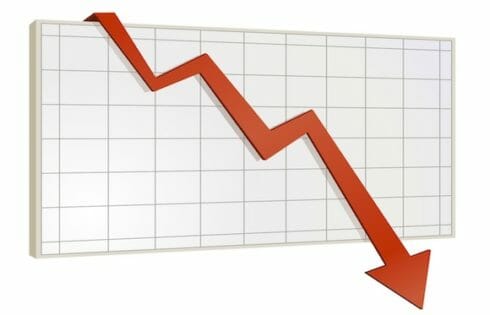
Book has ‘a lot of motivation assigned to historical figures that we just don’t have any evidence for,’ researcher says
The textbook, “A People’s History of the United States,” used in as many as one and four high school history classrooms, misinforms students and borrows from Karl Marx to present American history as a “conflict between capital and labor,” according to a new report.
The report by the Goldwater Institute compares “A People’s History” by the late Howard Zinn to Hillsdale College Professor Wilfred McClay’s alternative and less used textbook “Land of Hope: An Invitation to the Great American Story.” The institute is a conservative think tank in Arizona, focused on free market policy and Americans’ constitutional freedoms.
“The reason we wrote and released this report is encapsulated by the idea that fewer and fewer Americans are proud to be American,” author Tyler Bonin told The College Fix in a recent interview.
He cited a 2024 Gallup poll that found the number of Americans who are “extremely/very proud to be an American” has fallen from 90 percent to 67 percent since 2004.
“Students need to be given a well-rounded narrative but also need to find hope in the fact that we have much to strive for but we are founded on principles of liberty and flourishing,” Bonin said. He is a former history teacher and civics education specialist at Goldwater.
Zinn, a former professor and self-proclaimed “democratic socialist,” published “A People’s History” in 1980. Since then, it has become one of the most widely used history textbooks in American education, both at the high school and college level.
Zinn’s book in “conjunction with the affiliated online Zinn Education Project” is used in approximately one in four history classrooms at U.S. public schools, according to Bonin’s research, citing an American Historical Association report.
The Zinn Education Project did not respond two emails from The College Fix over the past two weeks, asking for its response to the report. The project offers lesson plans and other teaching materials “[b]ased on the approach to history highlighted in” Zinn’s book.
“We believe that through taking a more engaging and more honest look at the past, we can help equip students — and all of us — with the analytical tools to make sense of and improve the world today,” the project’s website states.
However, Bonin told The Fix that Zinn’s book contains “a lot of motivation assigned to historical figures that we just don’t have any evidence for.”
For example, the report pointed to a section in which Zinn described Thomas Jefferson writing “disapprovingly of slavery even while being slaveowners.” Zinn’s book suggests Jefferson’s writing was “underhanded” and “merely concealed ulterior motives,” according to the report.
In another instance, the report found that Zinn presented a “belief that the American Revolution was a project of economic manipulation and political oppression perpetrated by wealthy elites at the expense of the poor.”
Professor McClay’s alternative textbook, on the other hand, presented it as “a historically unprecedented advancement in declaring and securing liberty, equality, and self-determination advanced by flawed but extraordinary figures ”
“Works such as Land of Hope avoid these traps, instead highlighting the virtues of America while not shying away from its vices and shortcomings,” Bonin wrote in the report.
MORE: Howard Zinn lied about Christopher Columbus. Here’s how.
According to the report, “A People’s History” also contains a strong Marxist bias.
“The book has a near-exclusive focus on understanding every major event as a conflict between capital and labor, borrowing from Marx to scrub individual actors’ motivations free of all principles beyond greed and economic exploitation,” the report stated.
It also quoted Zinn himself, who once said, “Marx’s Communist Manifesto was … immensely useful and inspiring” in influencing his view of history.
Bonin’s report ultimately concluded that Zinn’s book “advances misrepresentations, lacks nuance, and aims to misinform our young people about landmarks of American history.”
Speaking with The Fix, Professor McClay said he wrote “Land of Hope,” in part, as a response to books such as Zinn’s.
“The widespread use of Zinn’s book in secondary schools and colleges around the country for many years has been an appalling spectacle. Even very left-wing historians acknowledge that Zinn’s book is bad history,” he said.
McClay attributed Zinn’s success to the fact that “his book is very readable and accessible, in a way that so many of the leading mainstream textbooks are not.”
“In writing Land of Hope I thought it was important not only to counter Zinn’s shallow, comic-book-like telling of the American past, but also to provide an alternative to the turgidity of the major texts,” he told The Fix. “The problem with our major textbooks is not only their ideological biases; it also has to do with the poor quality of writing.”
Another problem, McClay said, ”is that they are reluctant, to the point of squeamishness, to risk sounding proud of their country. But if that is going to be your starting place, you will be hard put to provide a compelling rationale for even studying the subject!”
When asked about the impact of Zinn’s textbook in the college classroom, McClay said he has noticed more skepticism among students in recent years.
Often now, students “come out of high school suspicious of nearly all received narratives, which is both good news and bad news,” he said.
McClay mentioned influences like Zinn’s book and the New York Times’ “1619 Project” – which he said promote a “highly critical” and “highly inaccurate” view of American history.
“It’s bad that high schools are not reliably imparting to their students a clear and affirmative sense of their own history. But it is good that they are suspicious of what they are getting, since much of what they are getting is suspect,” he told The Fix.
“It means that those of us who teach in colleges have work to do,” McClay said.
MORE: 1619 Project releases ‘reparations math’ curriculum for high school
IMAGE: Goldwater Institute, Zinn Education Project
Like The College Fix on Facebook / Follow us on Twitter






Please join the conversation about our stories on Facebook, Twitter, Instagram, Reddit, MeWe, Rumble, Gab, Minds and Gettr.